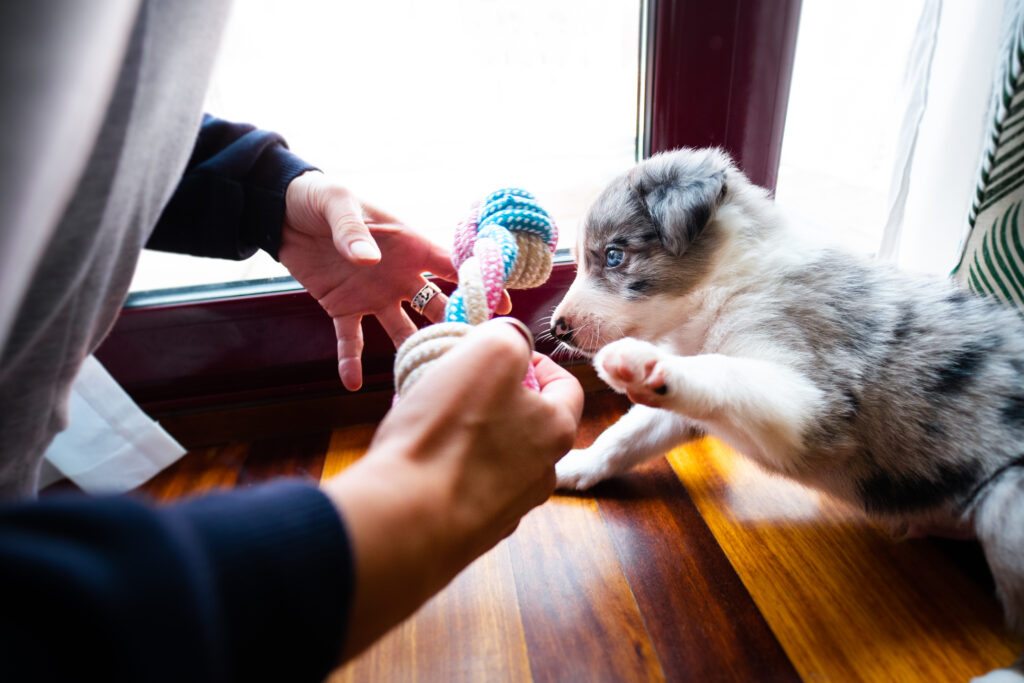Here are common mistakes to avoid when raising a new puppy…
Skipping Training Early
- Why to Avoid – Puppies need early training to understand basic commands, good behavior, and house rules. Waiting too long can make training harder later.
Inconsistent Rules
- Why to Avoid – If you allow bad behavior one day (e.g., jumping up) and correct it the next, your puppy will be confused. Consistency is key for good behavior.
Overwhelming Socialization
- Why to Avoid – Exposing your puppy to too many new experiences or people too quickly can overwhelm them. Gradually introduce new situations at a comfortable pace.
Punishing, Not Redirecting
- Why to Avoid – Negative reinforcement, like shouting or hitting, can damage the bond with your puppy. Instead, redirect their behavior with positive reinforcement and redirection.
Not Providing Enough Exercise
- Why to Avoid – Puppies need plenty of physical and mental stimulation. Insufficient exercise can lead to behavioral problems like chewing, barking, or anxiety.
Ignoring Socialization with Other Dogs
- Why to Avoid – Proper socialization with other dogs is crucial to preventing aggression or fear. Avoid isolating your puppy from other well-behaved dogs.
Overfeeding or Underfeeding
- Why to Avoid – Improper portions can lead to obesity or malnutrition. Follow your vet’s guidance on feeding amounts and frequency.
Not Setting a Routine
- Why to Avoid – Puppies thrive on routine. Inconsistent feeding, play, and potty times can confuse your puppy and make house training harder.
Neglecting Veterinary Care
- Why to Avoid – Regular vet visits are essential for vaccinations, deworming, and overall health. Missing appointments can leave your puppy vulnerable to illness.
Not Puppy-Proofing Your Home
- Why to Avoid – Puppies love to chew on anything they can find, including electrical cords, shoes, and furniture. Puppy-proofing prevents accidents and destruction.
Avoid mistakes like skipping early training, being inconsistent with rules, overwhelming your puppy with new experiences, punishing instead of redirecting, and neglecting exercise or socialization. Stick to a routine, provide proper veterinary care, and puppy-proof your home for a smooth transition.


